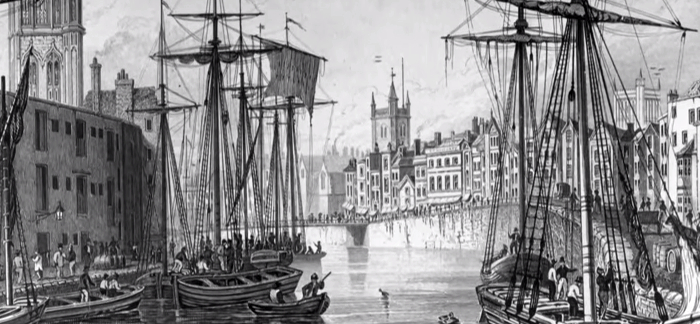Many people will recognize the name of Henry Hudson, but they might not know who he is or what he accomplished. His name is on Hudson Bay, the Hudson River, and the Hudson Strait because he is the man who is credited with finding them. Born in 1565 in London, his goal was simple: to find a new trade route that would help create more profitability for trade with Russia. His company had exclusive trading rights, so a Northeast Passage was sought.
1. Mutiny Ended It All
In total, Hudson made four total voyages in an attempt to find a new trading route. In the first 3 voyages, he attempted to get through the icy arctic waters to get to Russia, but without much success. On the third voyage, Hudson decided to go the other way so that his ship could reach warmer waters. That’s when he came to the northern reaches of the New World. In the end, however, Hudson was never successful and his crew mutinied after a cold winter. Set adrift with his son and loyal crew, he was never heard from again.
2. He Was a Fighter
When Hudson landed in Main in 1609, he encountered a number of Native tribes. Noting that they were “savages,” he also realized that trading with these people made a lot of sense. To help facilitate this trade, tribal leaders were invited aboard his ship. One of his crew got an arrow in the throat from a fight and more fights occurred as Hudson continued to explore the lands in the new area.
3. His Own Company Refused to Back Him
For his first two voyages, Hudson got a commission from the trading company he helped to found in order to find the new trade route. When those two voyages failed, he was basically out of work. The Dutch East India Company decided to finance him for a third voyage, but since he was a part-owner of another trading company, Hudson was forced to sign a contract regarding any discoveries.
4. England Stopped Him
Because no one would offer him a commission, he went outside of his country to find support. The only problem with this was that it meant any discoveries that Hudson would make would become the property of that nation and not England, his home country. When he finally returned from his third voyage, English authorities prevented him from making another voyage on behalf of any other country.
5. It Was the Ice
Hudson’s theory was essentially correct. If he could find a clear, ice-free passage that went through the arctic, then he’d be able to cut off a lot of travel time from the current trade routes. The only problem was that he was always blocked by ice when he attempted to get to Russia. Although initially considered a failure, history remembers Hudson because his exploration helped to greatly expand the knowledge that was had of the New World at the time, eventually leading to colonization efforts of multiple nations.




